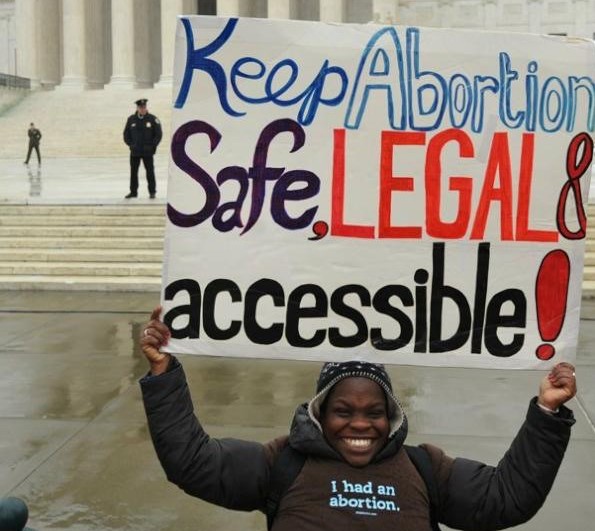
The June 24 US Supreme Court decision overturning Roe v. Wade comes six weeks after a court in El Salvador sentenced a woman to 30 years in prison after she suffered an obstetric emergency that resulted in termination of her pregnancy, according to a local advocacy group that was assisting in her defense. The Citizen Group for the Decriminalization of Abortion (Agrupación Ciudadana por la Despenalización del Aborto-ACDATEE) denounced the sentence and said it would appeal the conviction. The woman, identified only as “Esme,” was held in pre-trial detention for two years following her arrest when she sought medical care at a public hospital. She already had a seven-year-old daughter. (DW, May 11)
Just a week before the US high court ruling, another Salvadoran woman imprisoned for a similar “crime,” Teodora del Carmen Vásquez, had a warning for women in the United States. “From the moment we get pregnant, we become incubators,” she told the Associated Press. “We lose our rights, because the only possibility that we have of a life is taking care of the product inside us. It’s violence against us.”
Vásquez was released in 2018 after serving nearly 11 years of a 30-year term. Her sentence was commuted by El Salvador’s Supreme Court of Justice on the grounds that there was insufficient evidence to determine that she had intentionally caused the stillbirth. Her conviction was not overturned.
Vásquez was one of “Las 17“—Salvadoran women imprisoned after their pregnancies were terminated by obstetric problems. The other 16 remain in prison, and “Esme” may return the number to 17. Many more women have been prosecuted for suffering a miscarriage.
Abortion was generally available in El Salvador until the late 1990s, when conservative lawmakers changed the penal code—followed by a 1998 constitutional amendment defining life as starting at conception. While abortion carries a maximum eight-year term, prosecutors have the option of charging women with “aggravated homicide,” punishable by 30 years in prison.
While some Latin American countries have decriminalized abortion over the past years, El Salvador, Honduras and Nicaragua continue to have total bans. On March 6, some 2,000 women marched in San Salvador to demand legalization of abortion, and to protest “femicides.” In 2021, the country saw 132 documented cases of women slain in targeted attacks for their gender. (NPR, May 4; AFP, March 6)
Photo: Debra Sweet/WikiMedia via Jurist





Salvador woman freed after abortion conviction
A Salvadoran woman has been freed from prison more than seven years after she was convicted for having an abortion. The 28-year-old, identified only as Lilian, was sentenced to 30 years in prison in 2015. She gave birth to a girl in a public hospital in 2015, but the baby suffered health complications and died there three days later. Lilian is said to be the last woman imprisoned on such charges in El Salvador, although there are ongoing prosecutions. (BBC News, PRI)